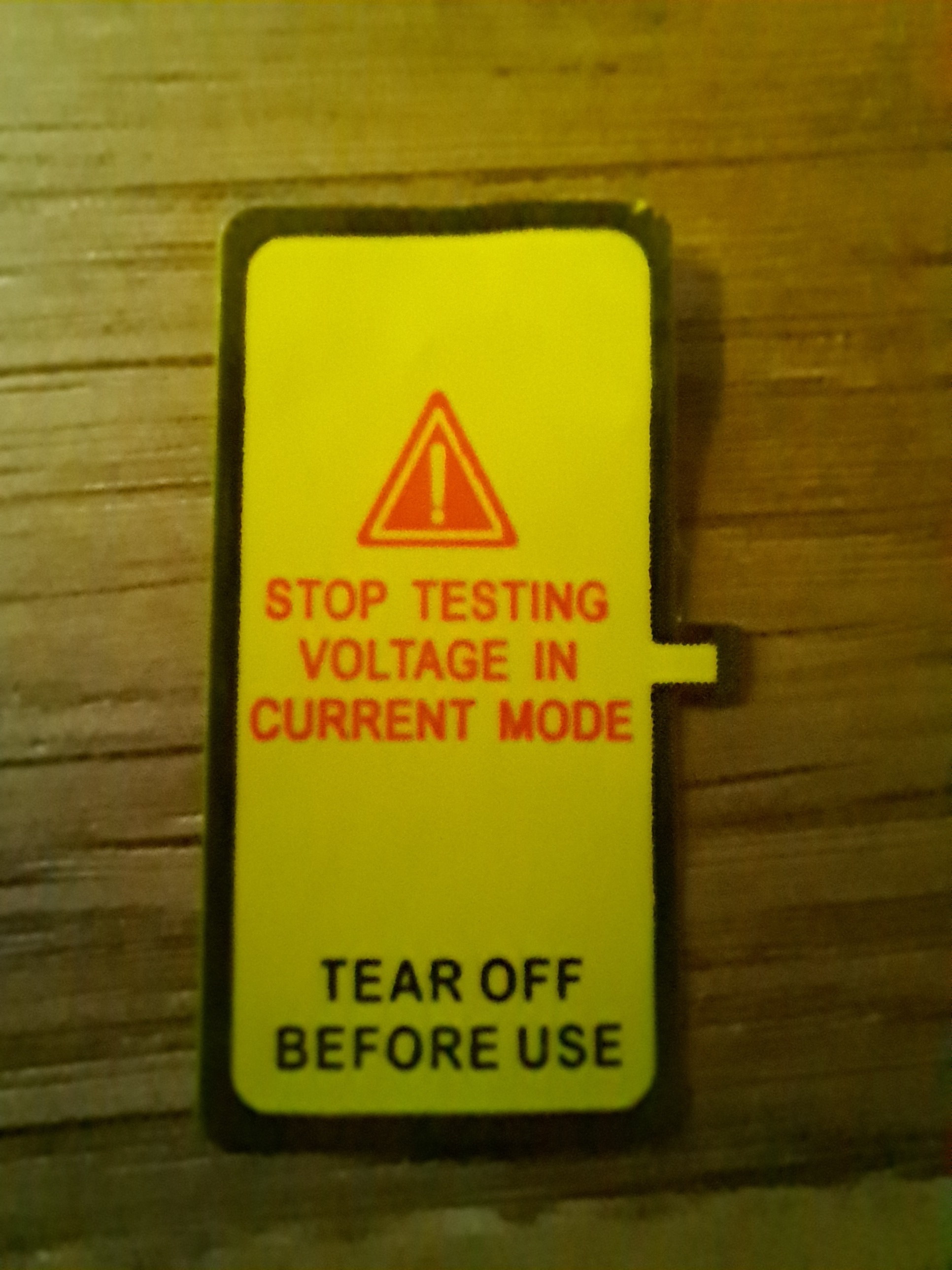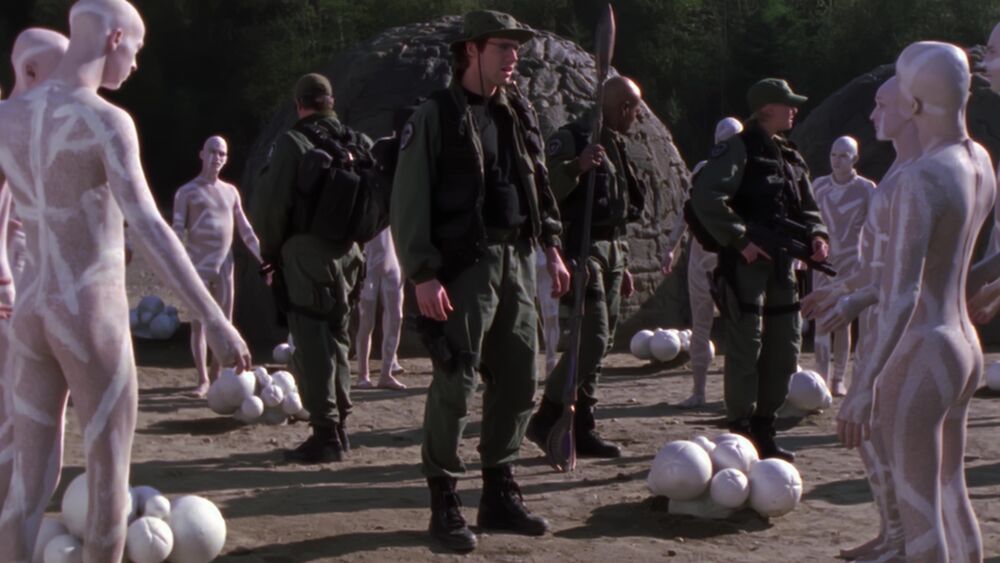Yes as a millennial who has never had a lot of money, there is one thing that's engraved in my soul: NEVER WASTE FOOD!
Thorry84
Cut to LaForge explaining to a nurse how he broke his hand punching Data in the face for the third time this week. O'Brien is in the background, he fucked up his shoulder again on the holodeck, Crusher could just permanently fix it but instead goes for a very mild painkiller and tells him to not be a bitch.
We used to have a cat that ran into the room, look you straight in the eye, fart and run away. And these farts were the ultra stinky kind, it sounded like a little squeek and the room would stink for at least an hour. One time we had to open a window and leave the room for a while. He did this so often it was 100% on purpose, although to this day I don't know what his purpose would have been. Maybe just to be an asshole, the natural state for all cats.
Yes, normal people do this all the time when they are alone. Talking to ones self is pretty much an universal thing, especially when alone, but sometimes even when in company of others.
In the same sort of vain like Hyperion are the Revelation Space series by Alastair Reynolds. He does the same sort of excellent work of world building and I found both series very comparable and intriguing. Also would recommend the Berserker series by Fred Saberhagen, very much a similar feel.
People always severely underestimate how little power solar panels actually produce. In optimal conditions they get around 1000 watt per square meter, but are only around 20% efficient. So that means 200 watt produced at the panel. Once you convert that into something useable and transport it to where you need it, you'll probably lose another 5 - 10%. And that's a square meter, that's more than you can comfortably carry. Think a flat panel of around 2 meters in length and 0.5 meters wide and lifting that above your head, pointed perfectly at the sun.
And the reality is, most solar panels even in permanent installations don't experience perfect conditions. They don't track the sun, so most of the time they aren't perfectly aligned to catch all that energy. They are most likely never aligned perfectly, or if they are just a few days out of the year for like an hour a day. The sun isn't always out, not just because you know night time, but also because of clouds and other weather or human related stuff. Lots of times there are shadows that prevent optimal workings. Dust and grime also plays a part. But another thing is temperature, solar panels are rated at around 20 degrees C. But when you put a black thing in full sun, you know it's going to get scorching hot. This also reduces the amount of energy you can usefully extract from the sunlight as well.
The annoying thing about solar panels is they aren't linear at all. It isn't like when conditions are 80% from optimal, they produce 80% of the power. No, usually it's more like 60%. And once you drop below 40% of optimal, you just produce basically zero. With a bit of effort this can be improved upon. For example I use microinverters which can regulate each panel individually, but even then it's not great. And that's with state of the art panels, which are very fragile, so they have a sturdy metal frame, a very tough plastic backing and a big ass layer of glass on top to protect them. If you get those more sturdy thin and light panels, you'll be lucky if they get 15% efficiency (most likely a lot less).
So putting solar on anything that isn't a permanent installation is usually pointless. It's way too hard to get those ideal conditions and the panels aren't very good to start with. If it's moving, it's hard to point at the sun all the time. Exceptions are maybe a small panel on the top of a campervans, which is probably the best case for a mobile installation and gets just a little bit of energy. But only if it doesn't disrupt the wind profile of the van, otherwise it probably costs more in gas to push it along at high speed than it ever delivers back in electricity. One of those small foldable panels can also be useful when hiking for example. You can carry it collapsed on your back and if you take a break, you can fold it out, point it at the sun and get some useful energy for a couple of hours while you get some rest. Putting it on when hiking would be pointless, as it would be bulky when folded out, usually not pointed at the sun and under cover of trees for example.
Maybe the technology will improve in the future, but for now any useful personal solar is very niche.
Is that my favorite Googledebunker Milo Rossi?
I don't know where you live, but where I live this is simply not true. A murder is a murder, regardless of the weapon or method used. The difference between an accident, wrongful death and murder is usually very clear and obvious. There can be a bit of a gray area where using vehicles as weapons of terror are involved, but there are other laws to handle that situation.
Because MAGA just found out Superman is an immigrant, like he has been since checks notes 1938.
One common misconception I've seen is people suddenly being afraid of their PTFE items they use at home. For example coated pans or PTFE cutting boards. They throw them out, because they think these will hurt them.
However this is not true. The long chain molecules used in the final product are perfectly safe. They get all their useful features from being big molecules and being very inert. That's why they are used in the first place. As such these molecules can't interact with biologics at all. You can safely eat them, they will just pass through your body. They don't interact with anything and are too big to get incorporated into anything.
The issue with stuff like PTFE is the production. That's where a lot of small PFAS molecules get used and after they've been used they can't easily be used again. So it's discarded as waste. But it turns out these smaller molecules can interact with biologics and not in a good way. And as they are still pretty inert, they don't break down at all. Hence the term forever chemicals.
Back in the day Dupont studied if those smaller PFAS molecules they were discarding into the world's water by the boatload could do any harm. They quickly found out yes, it can do a lot of harm. But to not hurt the bottom line (number must go up), they kept it a secret. This has damaged the environment in a very significant way.
When this came to light, they set out to design a new small molecule to use in the production. One that would be safe. So they did and used that, which satisfied the public for a time. However later it was proven this is a fantasy. The new molecule is just as bad as the previous one. And it turns out any variant of these kinds of molecules are just as harmful. That's why we now collectively call this class of molecule PFAS. Dupont probably knew about this, as the properties that made them useful in the production are the same properties that make it so dangerous to biologics. However since stuff like PTFE is too important in our modern world, we kept making the stuff. Only recently have we found out how big of a problem we are creating with that.
So when you have PTFE or similar items, please keep using them. The damage for these items is already done and the end product is safe. It would be a waste to have done the damage and then not even use the end product. But when buying new stuff, be on alert. Try to find out if PFAS was used in the production of the item and try to avoid where possible. There has been talk of laws in the EU which would require the label on a product to show if PFAS was used, so people can avoid it. But we aren't there yet.
If we were smart, we would ban it altogether. But like I said, too much of the modern world depends on these kinds of materials. So that's probably not going to happen.






Steve Mould did a really cool video on this: https://www.youtube.com/watch?v=rf-efIZI_Dg